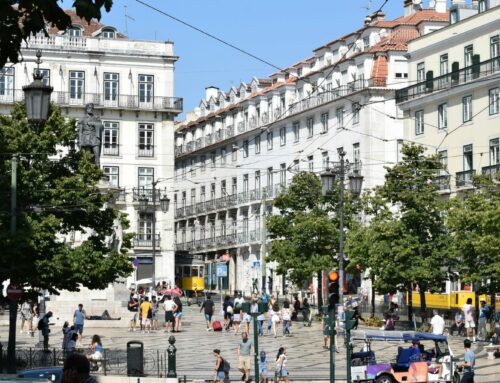Lisbon’s allure, a blend of old-world charm and new-age vibrancy, has long been recognized by global travelers. Recently, it’s the short-term rental market that’s taking center stage, drawing property investors and vacationers alike to Portugal’s sun-drenched capital.
The Current Landscape
In recent years, Lisbon has seen an influx of tourists seeking authentic experiences over traditional hotel stays. This surge is supported by data from AirDNA, showing an exponential rise in active short-term rental listings in the city.
Lisbon’s real estate market has consequently felt a significant impact. Traditional residential spaces are increasingly transformed into lucrative vacation rentals. And why not? The revenue potential is alluring, with the city’s year-round mild climate and an endless array of cultural attractions fueling a nearly constant demand.
Emergence as a Top Destination
Lisbon’s rise as a top travel destination is no coincidence. The city offers a rare combination of historic sites, such as the iconic Torre de Belém and the Jerónimos Monastery, alongside a vibrant nightlife and arts scene. The Turismo de Portugal notes the tourism sector’s contribution to about 8.2% of the country’s GDP, underlining the economic significance of this trend.
What This Means for Property Owners
For property owners, the thriving short-term rental market presents both opportunities and responsibilities. With the introduction of regulations requiring “local lodging” registration and adherence to safety standards, there’s a framework ensuring quality and sustainability in this booming sector.
The economic implications are clear: properties in Lisbon now have the potential to yield significant returns when managed correctly. Investors are urged to capitalize on this trend by employing strategies like competitive pricing, leveraging local events, and optimizing listings across various platforms.
The Impact of Amenities and Features
A closer examination reveals that amenities play a crucial role in a rental’s success. A study from Inside Airbnb highlights properties boasting features such as air conditioning, Wi-Fi, and dedicated workspaces tend to fare better in occupancy rates and reviews, a trend likely accelerated by the growing remote work culture.
Conclusion
Lisbon’s short-term rental market is flourishing, and the ripple effects across the city’s economy and culture are palpable. For those looking to dive into this market, the time is ripe. By understanding the landscape, complying with regulations, and optimizing property offerings, you can turn the Lisbon boom into a personal success story.
Whether you’re a property owner or a traveler, one thing is certain: Lisbon’s magic is more accessible than ever.





